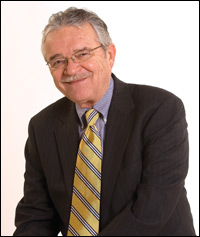ETHICALLY SPEAKING: Virtually all lawyers are interested in doing what is right
By: WISCONSIN LAW JOURNAL STAFF//May 26, 2011//
ETHICALLY SPEAKING: Virtually all lawyers are interested in doing what is right
By: WISCONSIN LAW JOURNAL STAFF//May 26, 2011//
By Michael Berzowski
Ethically Speaking

There was a time when the professional responsibility courses were regarded as the Rodney Dangerfield portion of the curriculum, that is “they got no respect” because, among other reasons, they were not considered a substantive subject like civil procedure or really useful like trial practice, torts or contracts. Of course, this was from the perspective of people who had never practiced a day in their lives and would have been surprised by the realities of practicing law.
Hopefully, both with law students and practicing lawyers, attitudes have shifted as a result of increased emphasis on professional responsibility and ethics since, from my perspective, ethics and professional responsibility apply to virtually everything a lawyer does both in and out of practice. Next, not following the rules can result in losing one’s job and source of income. Accordingly, professional responsibility should rank up at the top with regard to importance.
My approach has always been that virtually all lawyers are interested in doing what is right. The problem with this assumption is that it assumes fairly good grounding and knowledge of the rules. I am sure that some of you, similar to reading a contract or warranty after a breach or defect has occurred, pore over ethics rules when an allegation of violation has occurred. There is an opportunity for some preventative measures to be adopted.
I know from first-hand experience, as a result of teaching ethics courses two to four times a year for the last fifteen years, that there are lawyers who are not as well versed as one would think. Coupled with this, some attorneys attend these mandatory sessions with all the exuberance of someone facing a root canal – probably because it is a required appearance.
In theory, the rules are supposed to prescribe terms for resolving conflicts when the lawyer’s responsibility to clients, the legal system and the lawyer’s own interest in remaining an ethical person while earning a satisfactory living, are not in harmony. The problem with the foregoing statement is that it presupposes the lawyer recognizes the problem in the first place and solves it before it blossoms into a nightmare. Herein lies the rub. The rules, in many cases, are not intuitive. For example, all Wisconsin lawyers take the Attorney’s Oath. How many of them remember the Oath and how many realize a violation constitutes professional misconduct? The same thing may be true with regard to the training responsibilities of partners, managers and supervising lawyers. Trust account rules, for example, will not come to you in the quiet of the night.
A second problem with the rules is that some of them are imperative, i.e., “shall” or “shall not” whereas others are permissive, affording the lawyer the opportunity to exercise professional judgment. So they are partly obligatory and disciplinary and partly constitutive and descriptive in that they define a lawyer’s professional role. Compliance depends primarily upon understanding and voluntary compliance, reinforced by peer and public opinion, and when necessary, upon enforcement through disciplinary proceedings.
So then, what is the purpose of this article? First, the rules should be understood and followed. What is the silver bullet? Easy to say – hard for some to follow. Second, take the time to read the approximately 140 pages of SCR Chapter 20 at least once a year or more — maybe a chapter today (starting today). A little exertion along these lines will more than pay for itself. In other words, heal thyself.
I expressly warrant that every time you review these rules, you will learn something. This is the first of hopefully a series of articles on ethics and professional responsibility. I would like to hear what you are interested in reading. Hopefully, we will not evolve to a discussion of some obtuse rule that only occasionally presents itself.
Michael Berzowski is a partner with Weiss Berzowski Brady LLP in Milwaukee. He can be reached at [email protected].
Legal News
- FTC bans non-competes
- Gov. Evers seeks applicants for Dane County Circuit Court
- Milwaukee man charged in dismemberment death pleads not guilty
- Democratic-led states lead ban on the book ban
- UW Madison Professor: America’s child care crisis is holding back moms without college degrees
- History made in Trump New York trial opening statements
- Prosecutor won’t bring charges against Wisconsin lawmaker over fundraising scheme
- Republican Wisconsin Senate candidate says he doesn’t oppose elderly people voting
- Vice President Harris to reveal final rules mandating minimum standards for nursing home staffing
- Election workers fear threats to their safety as November nears
- Former law enforcement praise state’s response brief in Steven Avery case
- Eric Toney announces re-election bid for Fond du Lac County District Attorney
WLJ People
- Power 30 Personal Injury Attorneys – Russell Nicolet
- Power 30 Personal Injury Attorneys – Benjamin Nicolet
- Power 30 Personal Injury Attorneys – Dustin T. Woehl
- Power 30 Personal Injury Attorneys – Katherine Metzger
- Power 30 Personal Injury Attorneys – Joseph Ryan
- Power 30 Personal Injury Attorneys – James M. Ryan
- Power 30 Personal Injury Attorneys – Dana Wachs
- Power 30 Personal Injury Attorneys – Mark L. Thomsen
- Power 30 Personal Injury Attorneys – Matthew Lein
- Power 30 Personal Injury Attorneys – Jeffrey A. Pitman
- Power 30 Personal Injury Attorneys – William Pemberton
- Power 30 Personal Injury Attorneys – Howard S. Sicula








